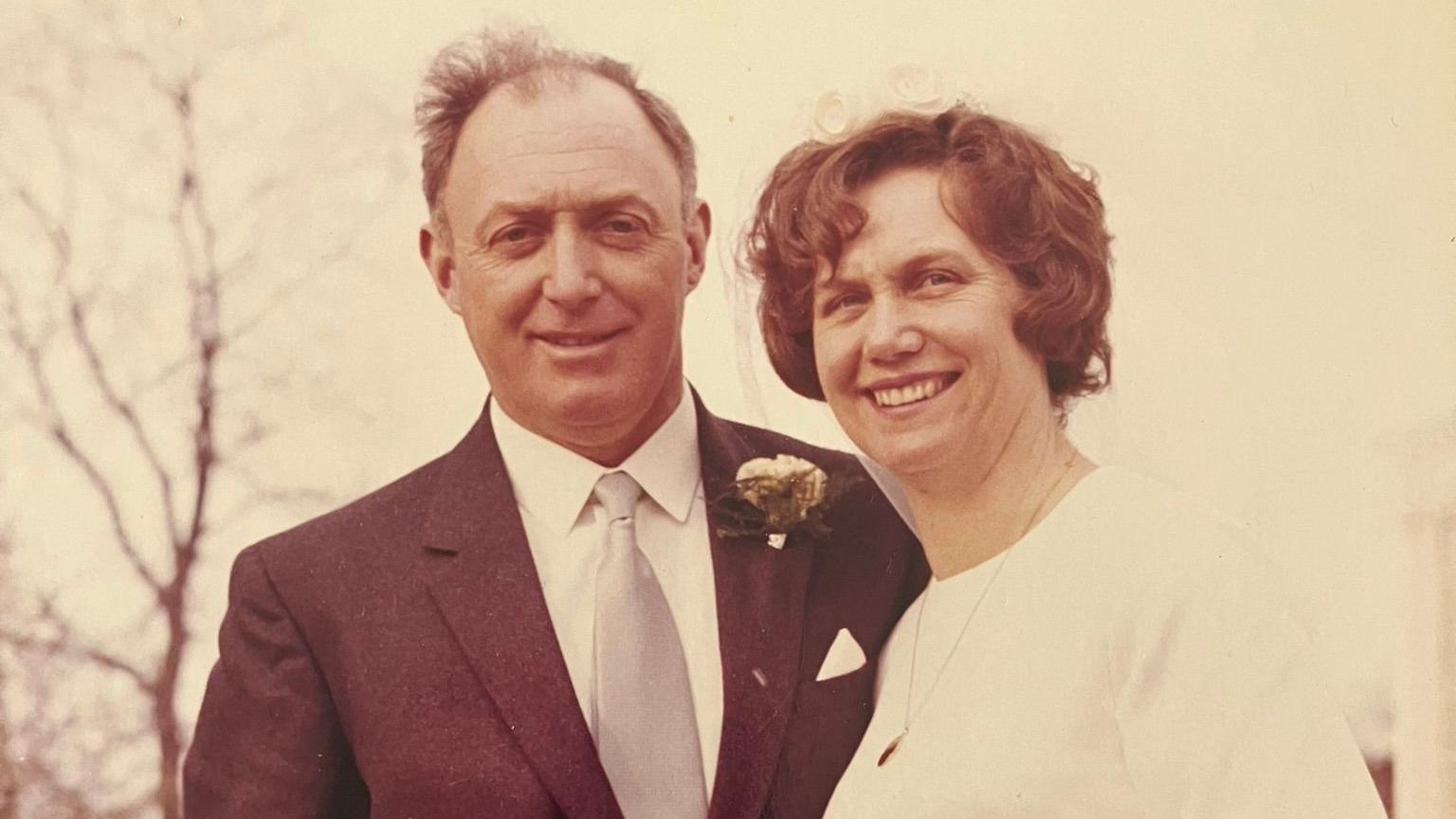Unlikely wartime friendship lasts a lifetime
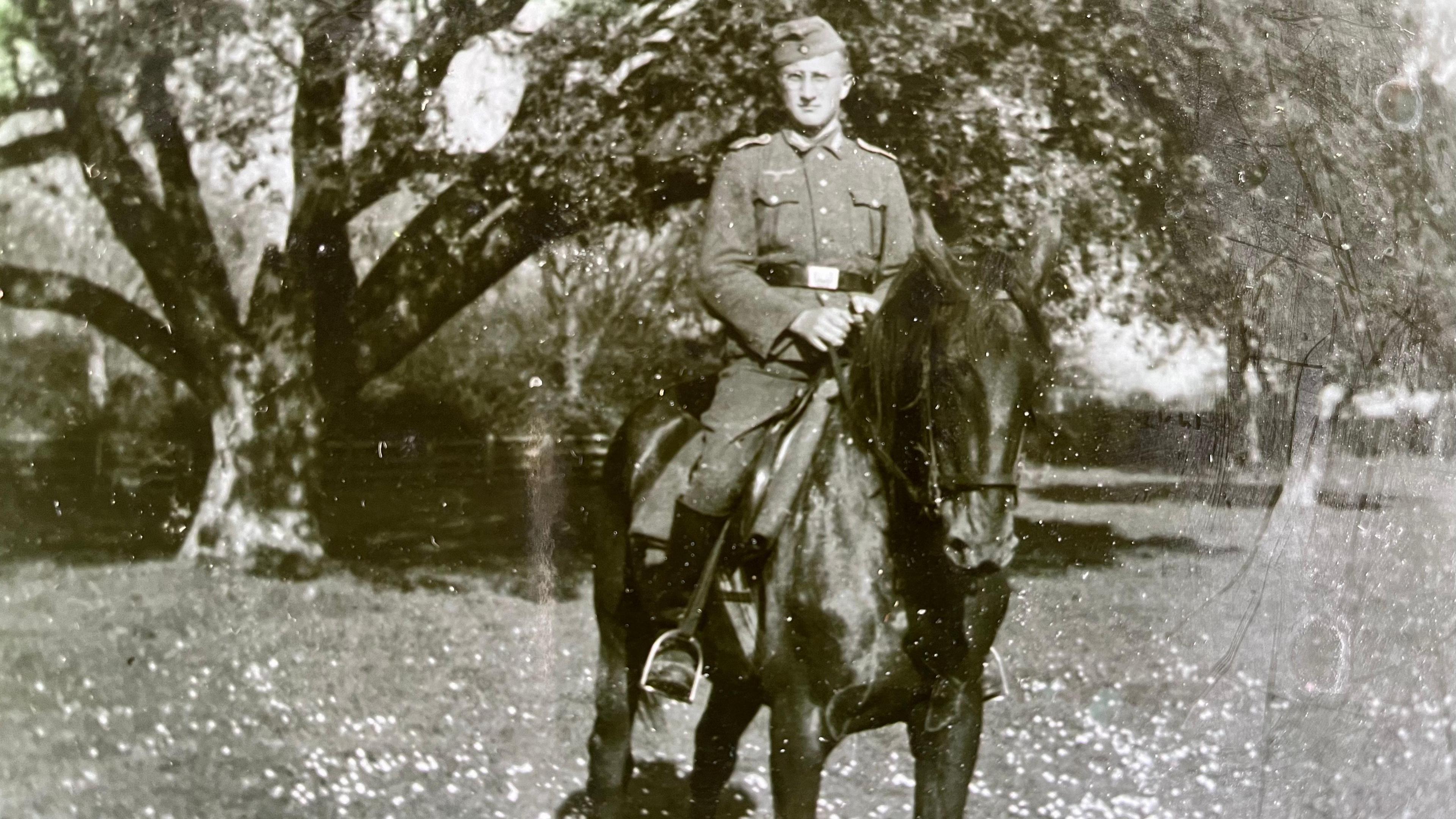
Rudolf Kirchner was an officer's groom during the German occupation of Guernsey when he befriended Roy Burton and his family
- Published
An unlikely wartime friendship between a Guernsey boy and a German soldier has kept two families in touch for more than 80 years.
Roy Burton, 93, has spoken about his wartime memories ahead of the 79th anniversary of Liberation Day on Thursday.
In quarantine with a childhood illness at the start of the German Occupation in June 1940, 10-year-old Roy missed the evacuation.
He stayed on his parents farm with his younger brother Len.
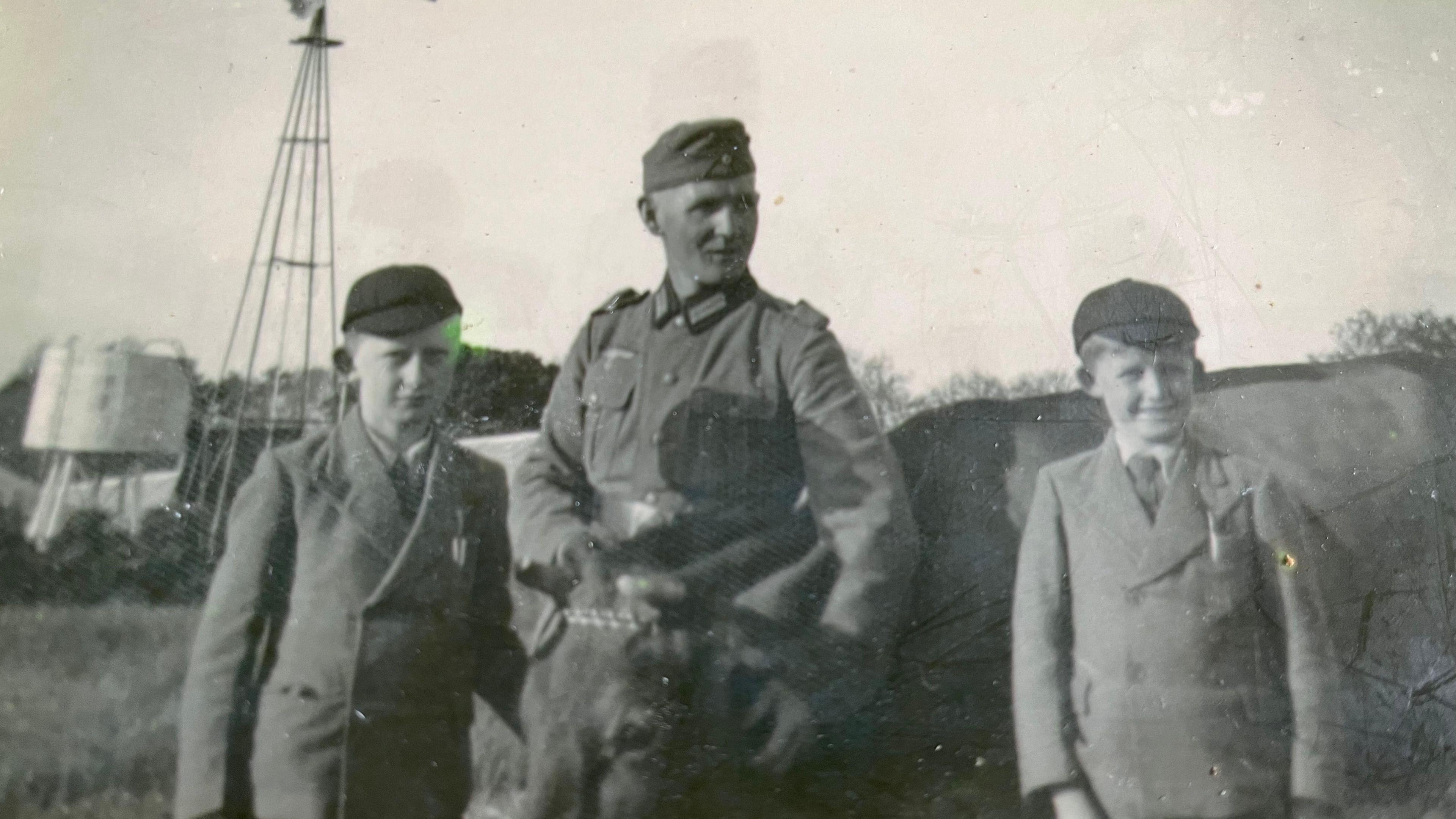
Roy Burton (left) and his younger brother Len with one of the first German soldiers they befriended
It was on the farm in 1941 he met Rudolf Kirchner, a then 20-year-old officer's groom grazing two horses in his father's fields
Mr Burton said his father tried for a week to chase Mr Kirchner off his land before striking a bargain to provide the German with a glass of milk in return for keeping the horses out of the fields.
The evening ritual turned into food too and soon the young German was eating with the family each night.
Mr Burton said: “That’s how we first met up properly and after that he was always at the table with us.”
The friendship the Burton family offered the young soldier meant he turned a blind eye to some of the things happening on the farm.
“We used to do black market, killing cows and pigs and stuff and he was always there giving a hand," he said.
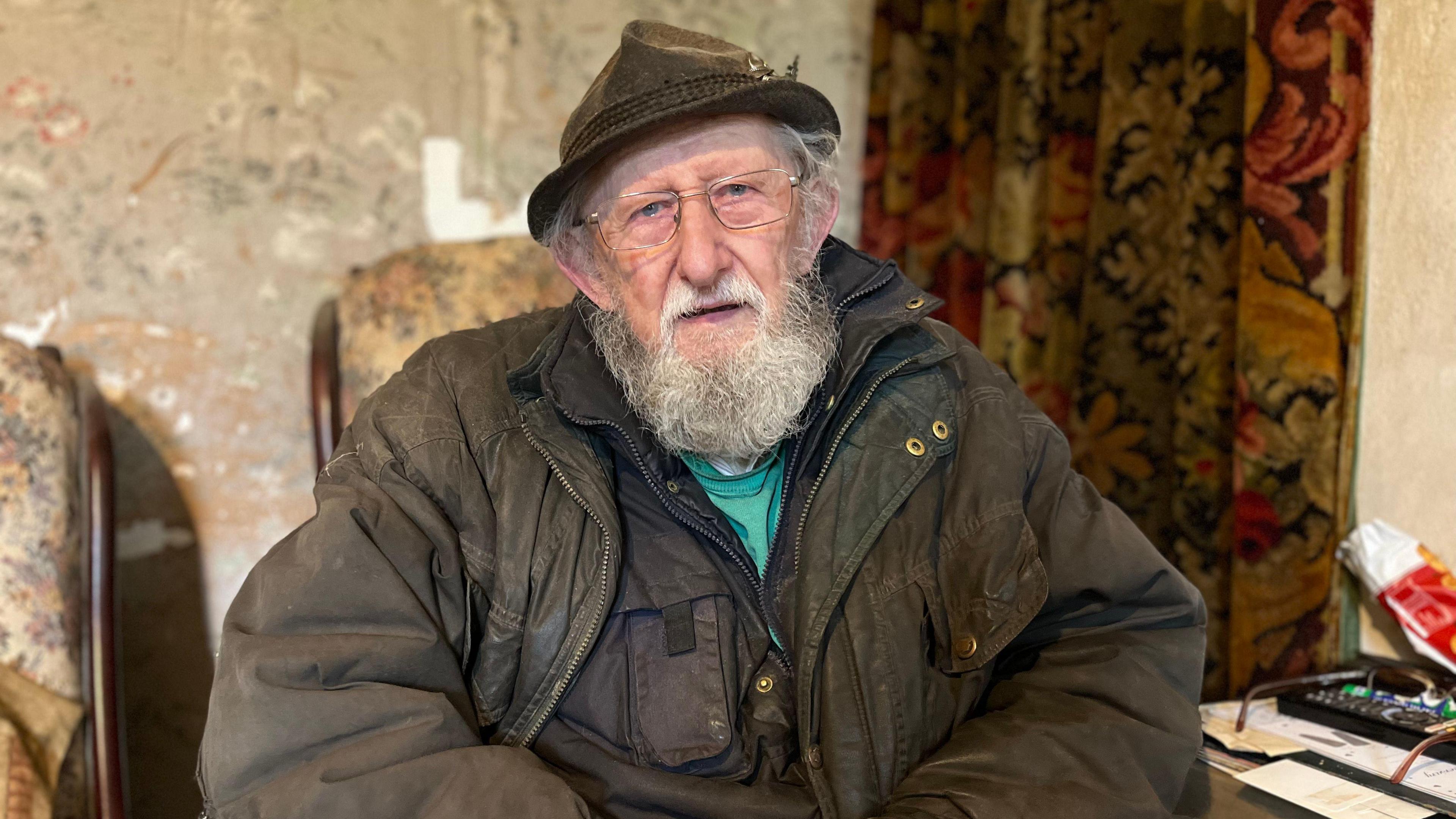
Roy Burton, 93, has spoken ahead of the 79th anniversary of Liberation Day
While Mr Kirchner was uncomfortable with some of the “verboten”, or forbidden, things happening, he was also keen to hear news of home, Mr Burton said.
He caught Mr Burton, his brother and a friend listening to comedian Tommy Handley’s BBC radio show on an illegal crystal radio set.
Mr Burton smiled as he remembered: “We were laughing our heads off and all of a sudden a voice goes that’s forbidden, that’s verboten.
"I said 'but today everything’s verboten'.”
Offering him the chance to hear the German news, the young soldier was soon listening every day.
When the crystal set broke, Mr Burton showed Mr Kirchner his father’s radio hidden in the kitchen larder.
He said: “I can still see him laying on the floor with the volume right down and his ear against the radio.
"I never said nothing to my people, that I’d done it, that I’d showed him.”
Mr Burton said it was not long before his father found out and he was in trouble.
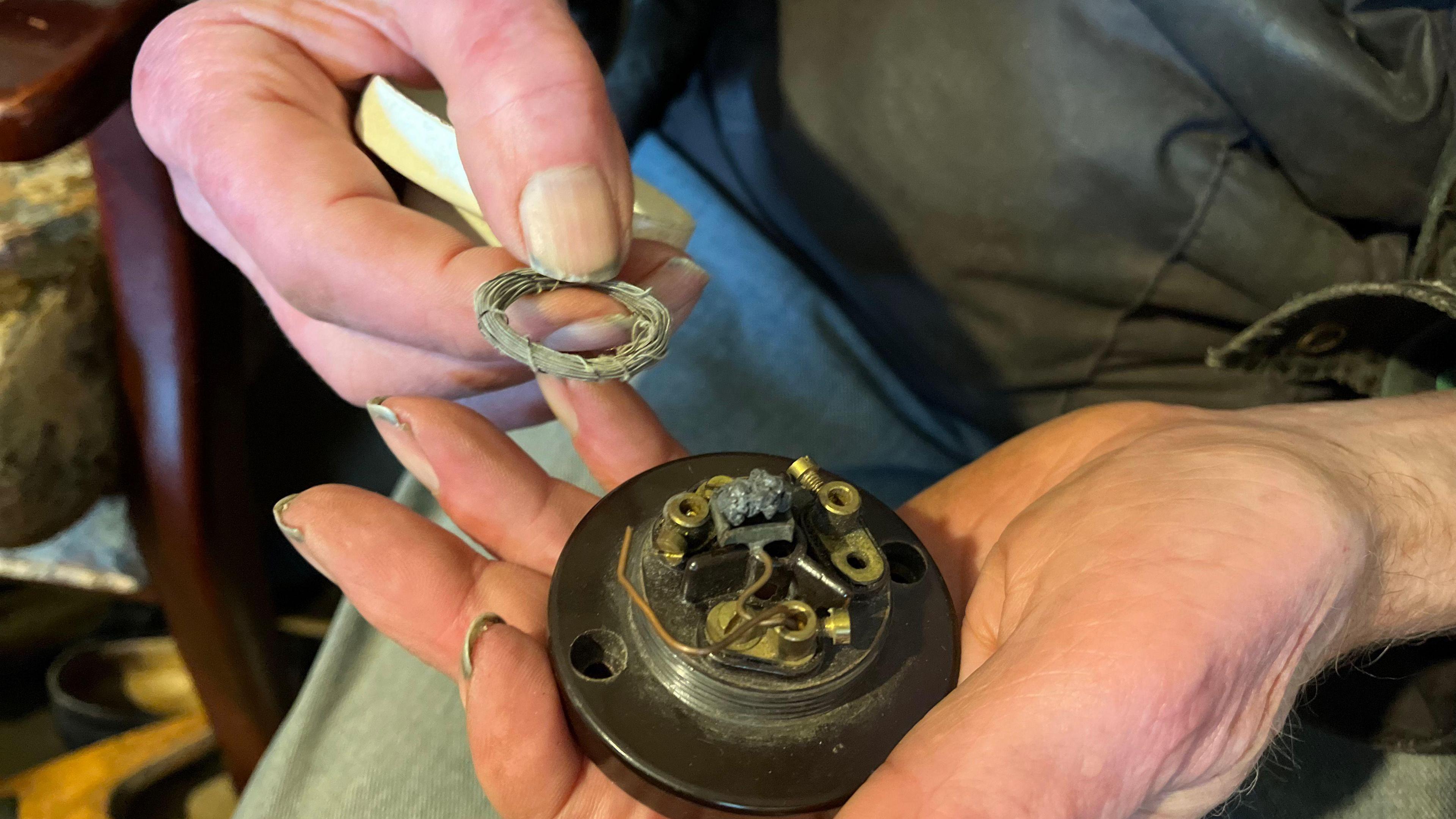
The radio wasn’t the only forbidden item Mr Kirchner discovered
The radio was not the only forbidden item that Mr Kirchner discovered during his time on the Burton farm.
They found Mr Burton’s father’s rifle buried in the hayloft.
He said the German soldier stripped the rifle down and hid it in the rafters of the hayloft and it was two years after the war before it was found.
Guernsey’s liberation, on 9 May 1945, could have ended the friendship as Mr Kirchner was taken to Scotland and then England as a prisoner of war.
Eventually, the family received a note to say Mr Kirchner was back in Germany and then heard no more for a long time.
Mr Burton said: “We lost my mother in August 1982 and lo and behold in February 1983 here a little note comes from Germany to say he’d like to come and see us again.”
Mr Kirchner returned to Guernsey several times with family while Mr Burton, and his late wife Brenda, visited Germany six times.
They shared in celebrations for the golden wedding anniversary of Mr Kirchner and his wife Else in 2003 and returned ten years later to surprise them for their 60th wedding anniversary.
Despite Mr Kirchner's death, Mr Burton has stayed in touch with his family in Germany, the wartime friendship enduring through the generations.
Follow BBC Guernsey on X (formerly Twitter), external and Facebook, external. Send your story ideas to channel.islands@bbc.co.uk, external.
Related topics
- Published1 May 2024
